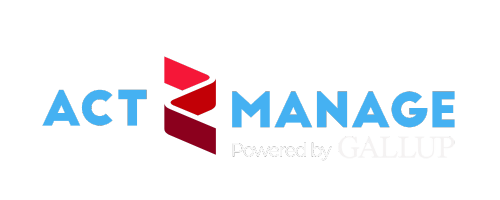Cool – I thought. Do you consider it important for your people to feel that they are better understood? – Absolutely – he replied, it is a crucial driver of engagement.
I am not sure if I get it well – I asked, but do you “outsource” a business critical activity to a software? How does the system have a conversation with the emplyoees about their talents, possible paths, aspirations, etc.?
– Well, it is not the system, but the managers have the conversation with them. We need someone to validate the skills.
– Okay, so your expensive software is supposed to trigger a conversation, and finally, you involve a human beeing (the manager) to talk to her team members. Is it unfair to say that this is a very expensive response to trigger a behavior? Why can’t you just simply ask the managers to have these conversations directly with their people? If they anyway are the final “decision makers”, why is it the only possible solution to build an institute, e.g. a Talent Management System, for it? Why can’t you let the managers to go their own way and leave the conversation up to them?
Look – he continued, our people were happy about the software, I can’t see anything wrong with it.
– I do not suggest that anything is wrong around there, I am just trying to figure out the added-value. On one hand, it is really good to see that employees consider it a good initiative, on the other hand you give the option to your managers to “delegate understanding their people” to a software. Moreover, if you consider this activity crucial, why don’t you teach your managers to put it on the top of their priority list?
Let’s zoom out for a moment. Why do companies need Talent Management Program in the first place?
We may tend to believe that we can get good ROI only from certain individuals. Maybe it is better to label them… Let’s call them… Ehm… Talents!
The next step is to define what this abstraction, talent, means. Whatever effort we put into defining it, finally it is impossible to prove or disprove that people who were enrolled in a talent program and excel in a particular job is the consequense of her talent. The situation is even more difficult, since we are trying to guess someone on a projection of her behavior, a probability that she will possess something in the future.
When we enroll someone into a talent program and finally, she performs better, how can we isolate if it is because of her original talent or because of the special attention and opportunity she received during the program? If we put our hand on our heart, we all can confess that we have no idea.
I’d argue to reshape our approach. To say that someone has talent means simply that she has the capacity to learn, and grow, and get better, like every other human. Let’s assume for a moment that we do not get good ROI only from cartain people, but everyone contributes to the results this or that way. Firstly, it makes assessments and ratings unnecessary. Secondly, we may not need to define what talent is, maybe we can simply call talented everyone who wants. Who wants to make progress. Who wants to be better right now. Who has ambitions at this very moment. Who wants to invest time and energy in her development.
We can give her the chance and playground to enrich their experience and knowledge e.g. in a Talent program and see how she proceeds. We may help her understand where she is at this moment in time, not so that she can be categorized and put into one box instead of another, but so that she can understand what paths are possible next. Not everybody may walk the way with the same speed or trajectory, but we can be sure that everyone will be more of who they already were. Addressing talent makes employees feel like they’ve been dealt with. Addressing momentum makes them feel understood.
Act2Manage Application
An interactive, gamification-based, practice-oriented leadership development application that provides immediate help and enables follow-up to the most common dilemmas.







